Since its establishment, our Center for Laser and Fiber Optics Education, LASER-TEC, has been focusing on the development of a qualified laser and fiber optics technical workforce. Originally chartered to operate within the Southeast Region of the United States, LASER-TEC has expanded its operation to other regions of the nation. To develop and sustain the pipeline of the laser, optics, photonics, and fiber optics (LOPFO) technical talent, LASER-TEC has developed resources, shaped policies, leveraged partnerships, and hosted numerous outreach and informational events.
LASER-TEC has increased the number of graduating photonics technicians in the US from 395 in 2010 to 820 in 2019, a gain of 208%. Over 11,000 graduates of our programs are gainfully employed and support the photonics industry and industries critical to our nation: advanced manufacturing, semiconductor industry, telecommunications, biomedical, healthcare, security and defense, and others.
Over fifty companies across the Nation have hired our graduates. These companies include local cities, municipalities, hospitals, industry leaders such as Harris Corporation, Raytheon, Northrop Grumman, CREE, Sumitomo Electric Lightwave Corporation, research facilities such as Lawrence Livermore National Laboratory, Florida Atlantic University Harbor Branch Oceanographic Institute. Our graduates also support smaller, family-owned companies, such as PCS Fiber, Awareness Technology, Gerelcom, Kopp Development, and many others.
One of the major areas of our resource center is the development and distribution of materials and resources to support the infusion of lasers and fiber optic technologies into college, K-12, and industry educational programs. Guided by the NSF ATE best practices for streamlined curriculum infusion, LASER-TEC’s materials include PowerPoint presentations with graphics, schematics, equations, student assessment and answer keys, videos, learning outcomes, and crosswalk to K-12 Next Generation Science Standards.
LASER-TEC houses, updates, and distributes an extensive library of resources. Collective LASER-TEC resource library consists of 9 college-level textbooks, 24 educational modules, 4 laboratory books, 4 demonstration and lesson plan books for K-12 teachers and students, 8 laboratory kits, 40 promotional flyers, 6 posters, 4 military occupation specialty to photonics crosswalk brochures for veterans. Resources are available to introduce LOPFO technology in both traditional and blended course formats.
By 2021, LASER-TEC has assembled and distributed 1,302 educational kits to US colleges and high schools.
Over the next several years, we will focus on the development of new educational modules in LOPFO emerging trends to fill the gap in students’ technical skills and knowledge: Raman Spectroscopy, LiDAR, High Power Diode Lasers, Femto Second Lasers, and Disk Lasers. We will also update and standardize over 20 existing modules developed by our partners.

The availability of a qualified workforce is sustained by the development and strengthening of LASER-TEC college programs. Since 2012, our Optics and Photonics College network has grown from 9 colleges to 45. From the beginning, the Center has worked diligently to increase LOPFO students’ enrollment and has achieved a sustained 208% increase since its inception.
208% increase in student enrollment
Student retention rate 95%
Our Center has developed remediation pathways for applicants to better prepare them for college and ensure strong retention and graduation rates. Cohort-based program design and continuous student support provided by student academic coaches have resulted in an average 95% retention rates in the Indian River State College Electronics Engineering Technology and Central Carolina Community College Laser Technology programs (CCCC).
The Center has facilitated the expansion of diversity in the LPFO workforce pipeline. Carefully tailored recruitment strategies and partnerships with local, state, and national organizations supporting underrepresented groups, veterans, unemployed, or underemployed have resulted in the enrichment of LOPFO college programs. Specifically, 58.5% of the 2020-2021 IRSC photonics cohort consists of student populations that have been historically underrepresented in the field. In 2019, the number of female students pursuing LPFO tripled and the veteran representation doubled compared to 2013.
LASER-TEC developed or updated 10 LPFO courses offered at its partner colleges: Intro to Photonics, Fiber Optics and Data Communications, Geometrical Optics, Laser Technologies, Biomedical electronics, Solar Thermal Systems, Solar Photovoltaic Systems, Photonics Technology, Photonic Applications, and Laser Applications.
The growth of the number of available photonics courses and student enrollment resulted in a continuous growth of student-semester-hours (SSH) offered at LASER-TEC colleges. By the sixth year of operation LASER-TEC increased SSH from 798 to 3,987 (Figure 4).
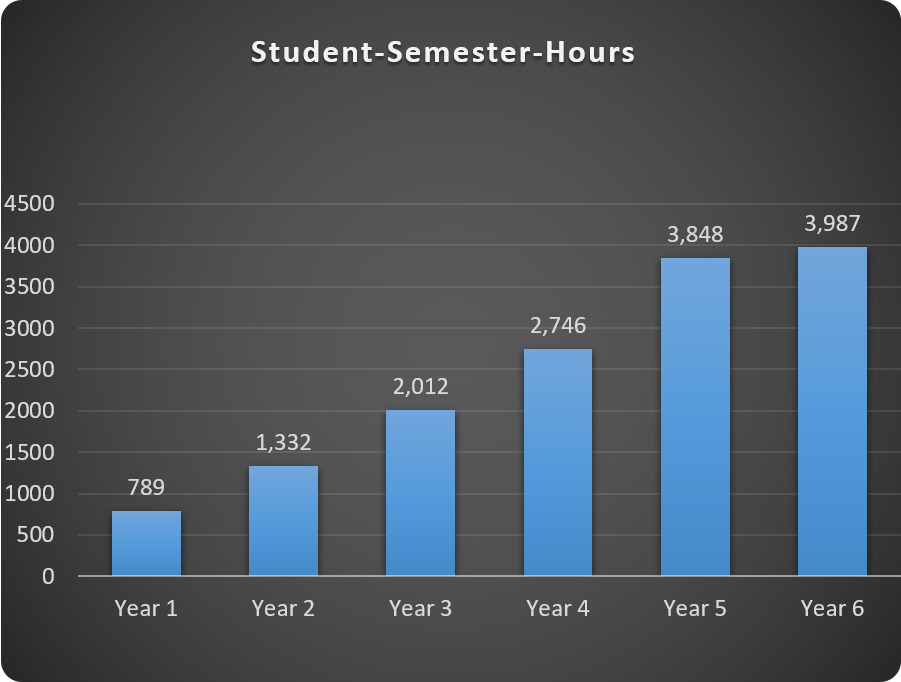
Figure 4. Number of Student-Semester-Hours offered at LASER-TEC colleges
LASER-TEC has put a big effort toward developing, customizing, and offering professional development opportunities to K-12 teachers, counselors, college faculty, advisors, administrators, and industry incumbent workforce.
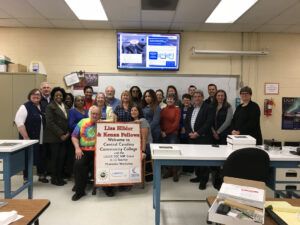
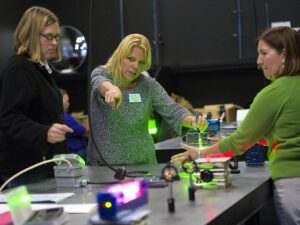
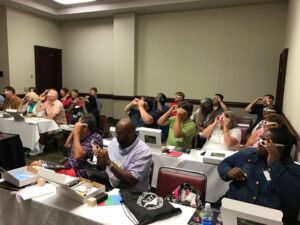
Picture 1. LASER-TEC professional development for teachers
The Laser and Fiber Optics is a one-day hands-on workshop, designed for middle school and high school educators teaching math, science, technology, and engineering (STEM) and Career and Technical Education (CTE) disciplines. The purpose of this workshop is to introduce cutting-edge technologies of lasers and fiber optics to high and middle school educators and help them integrate photonics and photonics applications into existing lesson plans. The Center has facilitated the infusion of lasers and fiber optics in the following K-12 disciplines: physics, chemistry, biology, integrated science, mathematics, art, general engineering, and computer science.
The workshop is supported by the Light and Optics Exploration Kit, developed by the Center. The kit is accompanied by a step-by-step guide that includes 15 classroom demonstrations linked to the Next Generation Science Standards and the State of Florida Science Standards. Each participant of the workshop was eligible for in-service hours and received the kit with the lesson plans, printed outreach materials, and access to support e-materials.
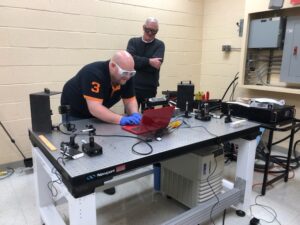

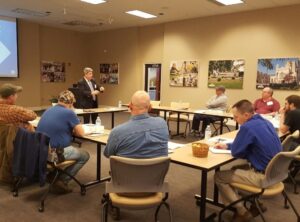
Picture 2. LASER-TEC professional development for college faculty
“The Fourth Industrial Revolution: Cyber-Physical Systems and the New Workforce Skill Sets” workshop is geared for college faculty who would like to infuse fundamentals of lasers, laser safety, and optics into their industrial manufacturing, electronics engineering, and other related courses and programs. It’s a one–day hands-on workshop that covers topics of modern laser photonics applications, laser safety, and consists of a series of hands-on labs that explore fundamental principles of laser technology. The workshop is supported by the Light and Optics Experiment Kit developed by our center. Each kit includes the Experiment Book with 23 laboratories and provides step-by-step guidance in student experiment-based investigation of optics and lasers.
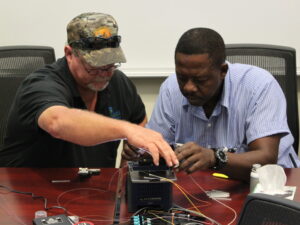


Picture 2. LASER-TEC professional development for the incumbent workforce
LASER-TEC has strengthened LOPFO incumbent workforce by providing professional development opportunities eligible for industry-recognized continuous education credits. During 2013-2021, 170 technicians have advanced their technical knowledge and skills by participating in LASER-TEC training on fiber optics, fiber optic link testing and troubleshooting, laser and laser systems, modern telecommunications, IP- integrated networks, smart buildings, cities, and others.
In addition to in-person professional development opportunities, LASER-TEC offers a series of virtual and blended courses that are suited for incumbent technicians and educators. At the time of the report writing, the series of Laser-Photonics Courses consisted of five classes: Introduction to Photonics, Geometrical and Physical Optics, Fundamentals of Fiber Optics, Laser Systems and Applications, Introductions to Spectroscopy. In September 2020, all five courses were certified for the Board of Laser Safety Certification Maintenance (CM) points and can be taken by laser safety professionals to maintain their credentialing.
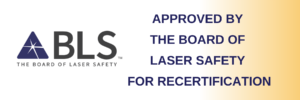
725 secondary and postsecondary educators have taken LASER-TEC’s 51 professional development seminars.
A diverse outreach strategy conducted by LASER-TEC included public events, open house events, workshops, seminars, tours, student lab visits, school visits, conference presentations and showcases, summer, and year-round student camps. The two-prong outreach approach has been aimed at increasing general public awareness about the impact of LOPFO fields on the economic prosperity of the nation and preparing students for LOPFO college programs. During 2013-2021, our center hosted 592 events, over 43,000 students, parents, and members of the general public participated in LASER-TEC events. (Figure 5, 6).
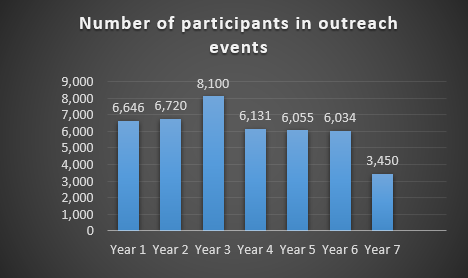
Figure 5. Number of participants at LASER-TEC events

Figure 6. Number of LASER-TEC outreach events
LASER-TEC boot camps engage middle and high school students in the exploration of photonics and other enabling fields such as electronics, automation, and programming. The Center has developed 7 different camps and educational kits to support each of these camps: Laser and Fiber Optics, Coding with Arduino: Visible Light Spectrum, Coding with Arduino-Wireless Technologies, Coding with Arduino-Game Programming, Electronics Bootmaker, Tech Like a Girl, and Emerging Technologies Summer Camp. The duration of each camp varies between 16 and 200 contact hours. The camps are aimed at a long-term engagement with students, helping them get college-ready, ramp up their knowledge and skills in math and science, and develop new knowledge and skills in emerging and enabling technologies. During 2016-2020 we have hosted 45 camp sessions for 509 students.
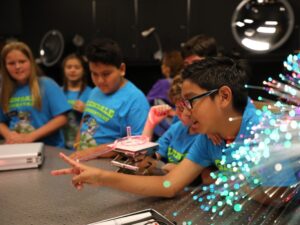


Picture 4. LASER-TEC community and student outreach
The LASER-TEC’s effort to expand the LOPFO workforce is strongly supported by the Industry Network and Industry Advisory Board. LASER-TEC’s Industry Network consists of 162 LFO companies and seven organizations from across the nation. The members of the networks are proactively engaged through activities with the Florida Photonics Cluster, North Carolina Research Triangle, and professional organizations such as Laser Institute of America, International Society for Optics and Photonics, SPIE, Optical Society of America, IEEE, Power of America and others.
The Center has organized and facilitated 55 on-campus or on-site hiring sessions for 19 LFO companies. This effort enabled industry to acquire qualified workforce, while providing graduates with opportunities of gainful employment.
Together with the Laser Institute of America, LASER-TEC has been developing and publishing the series of articles “Laser Pioneers” in bimonthly LIA-Today. The “Laser Pioneers” series features interviews with people who worked and contributed in the early years of the laser industry. This series is intended to capture the history of laser technology development through the eyes of forefront scientists and engineers. The Center has encouraged to share these publications with current and potential LOPFO students to provoke their curiosity about the history of the rapid laser technology advancement, learn about the nature of discovery and technological progress.
In partnership with Photonics Spectra, LASER-TEC has initiated a project that increases awareness and expands the collaborative platform between OPCN colleges and the photonics industry. Beginning January 2020, one OPCN college is featured in the monthly B2B magazine that reaches more than 105,000 photonics industrial subscribers.
The publications enable colleges to reach out to local, regional, and national photonics employers and showcase their academic programs, specializations, laboratory facilities, as well as graduates’ skillsets and knowledge. For the industry, this is a valuable source of information about the availability of a qualified technical workforce. The colleges provide direct contact information to streamline the communication process between the two parties
Student-semester-hours of photonics education offered
Outreach events hosted
Participants attend our events
Workshops offered for teachers and faculty
Teachers and college faculty attended our workshops
Educational kits distributed to US colleges and high schools
By April 2020, almost all OPCN colleges have transferred to a remote operation to ensure the safety of their students and co-workers due to the spread of the COVID-19 pandemic. At the time, there were no quick solutions for the hands-on practice that was done in college laboratories with specialized parts, devices, and instrumentation. Starting April 2020, LASER-TEC started assembling and mailing the Light and Optics Experiment Kit (LOEK) to OPCN students and faculty for home use. This kit supports the majority of experiments in the textbook Fundamentals of Light and Lasers and allowed students to complete laboratories in beginner Photonics courses from the safety of their homes. The Center has also developed instructional videos which guide students through the experiments supported by the kit. A total of 217 kits were mailed to students and faculty from 16 OPCN colleges.
LASER-TEC has built a solid foundation for organic and sustained growth of the laser, photonics, and fiber optics workforce since its beginning in 2011. The Center has addressed the immediate industry need for qualified technical personnel and increased the number of graduating technicians by 208% from 2011 to 2021. LASER-TEC assisted US colleges to establish LPFO academic programs and created the Optics and Photonics College Network (OPCN) that grew from 9 colleges to 45. The Center assisted all college members to increase their student enrollment and graduation. The Center has developed or updated 10 courses with all the associated educational resources: textbook, power-point presentations, test-banks, lab books, videos of experiments. Created five online self-paced courses for industry training and professional development of educators. Authored 23 educational modules covering advanced applications of Laser-photonics in biomedicine, forensics, defense, manufacturing, environmental monitoring, precision optics, fiber optics, spectroscopy, and optoelectronics. LASER-TEC also developed a resource library that includes a broad range of educational and informational materials, solutions, and guides. Established strong partnership with the industry enabled infusion of the latest standards into the LPFO curriculum. The Center has developed infrastructure that will enable effective and streamlined dissemination of available resources and services to US educational institutions and industrial partners.




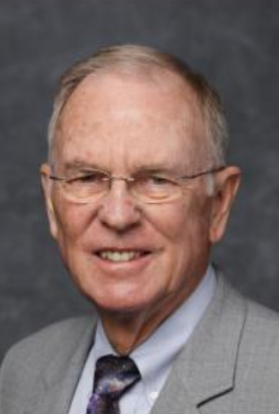
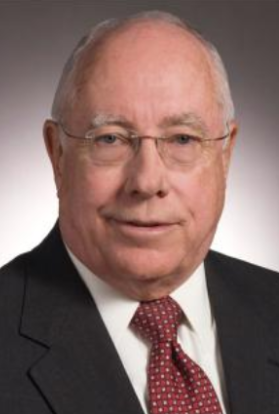
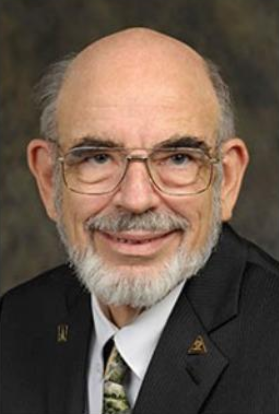
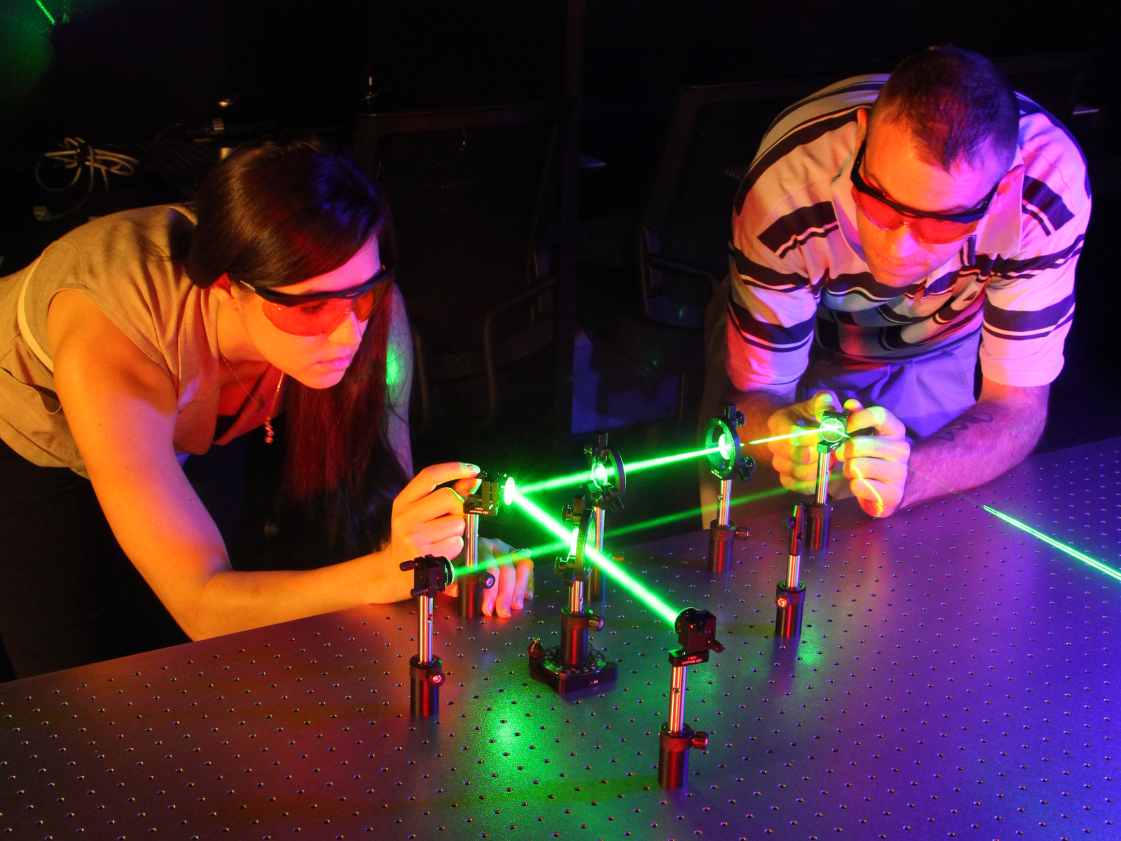
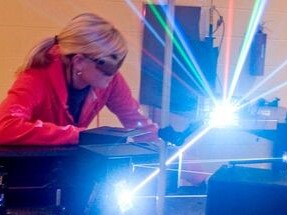
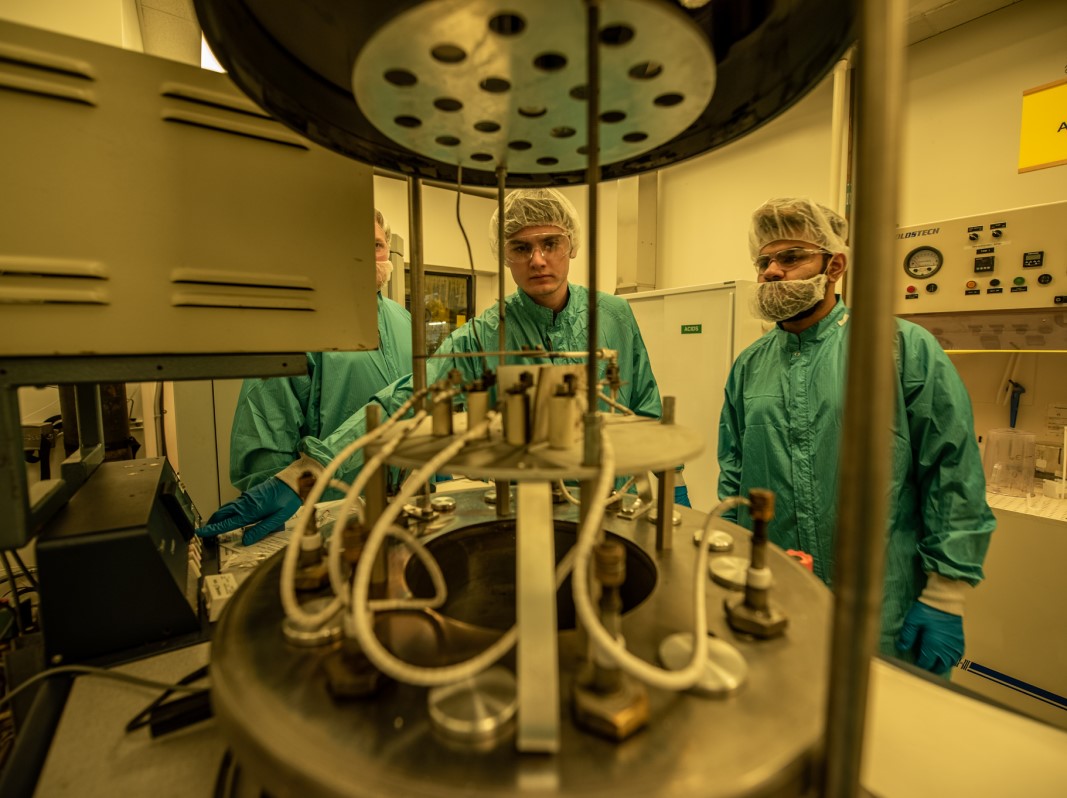

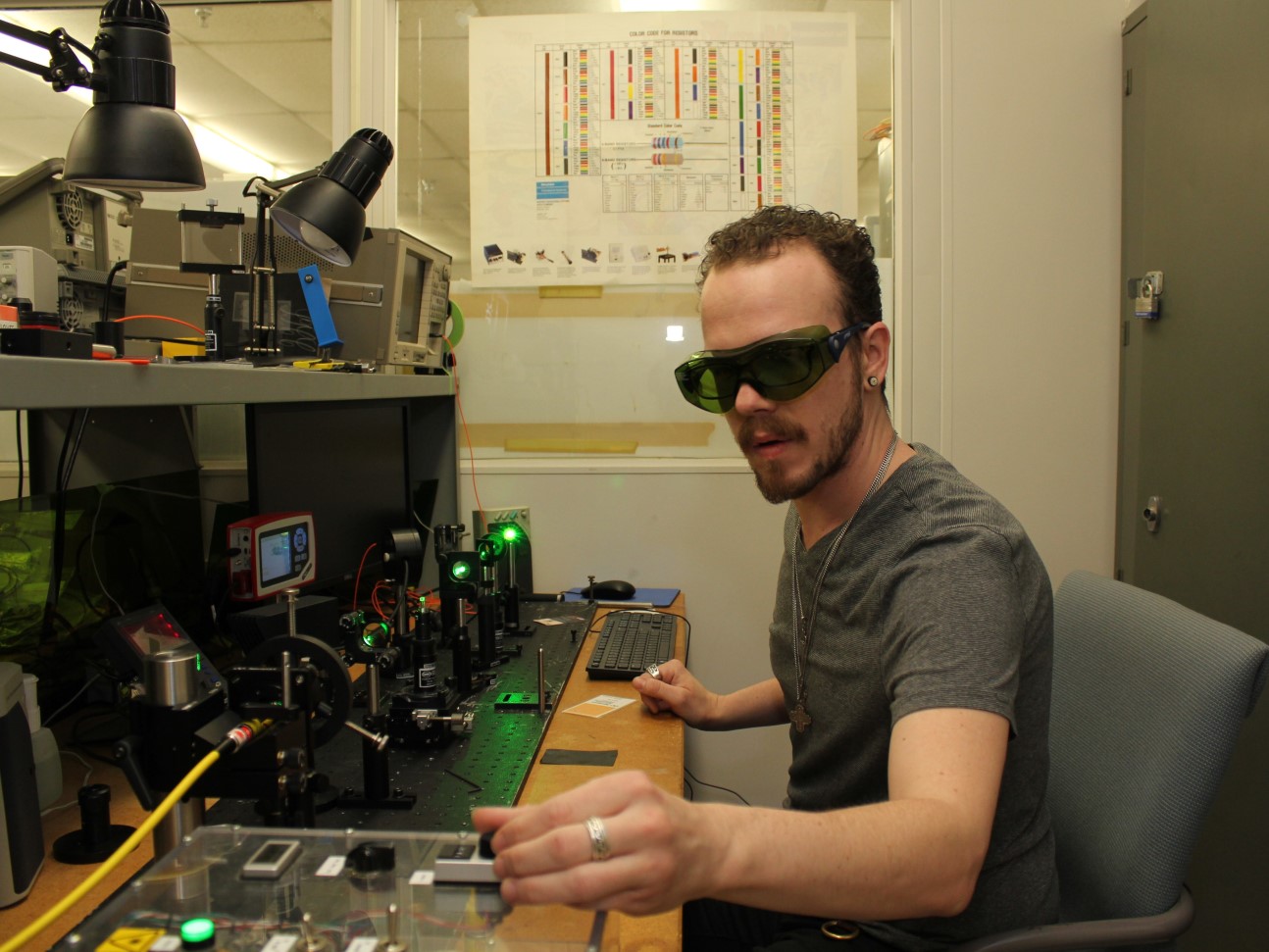
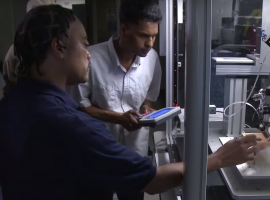
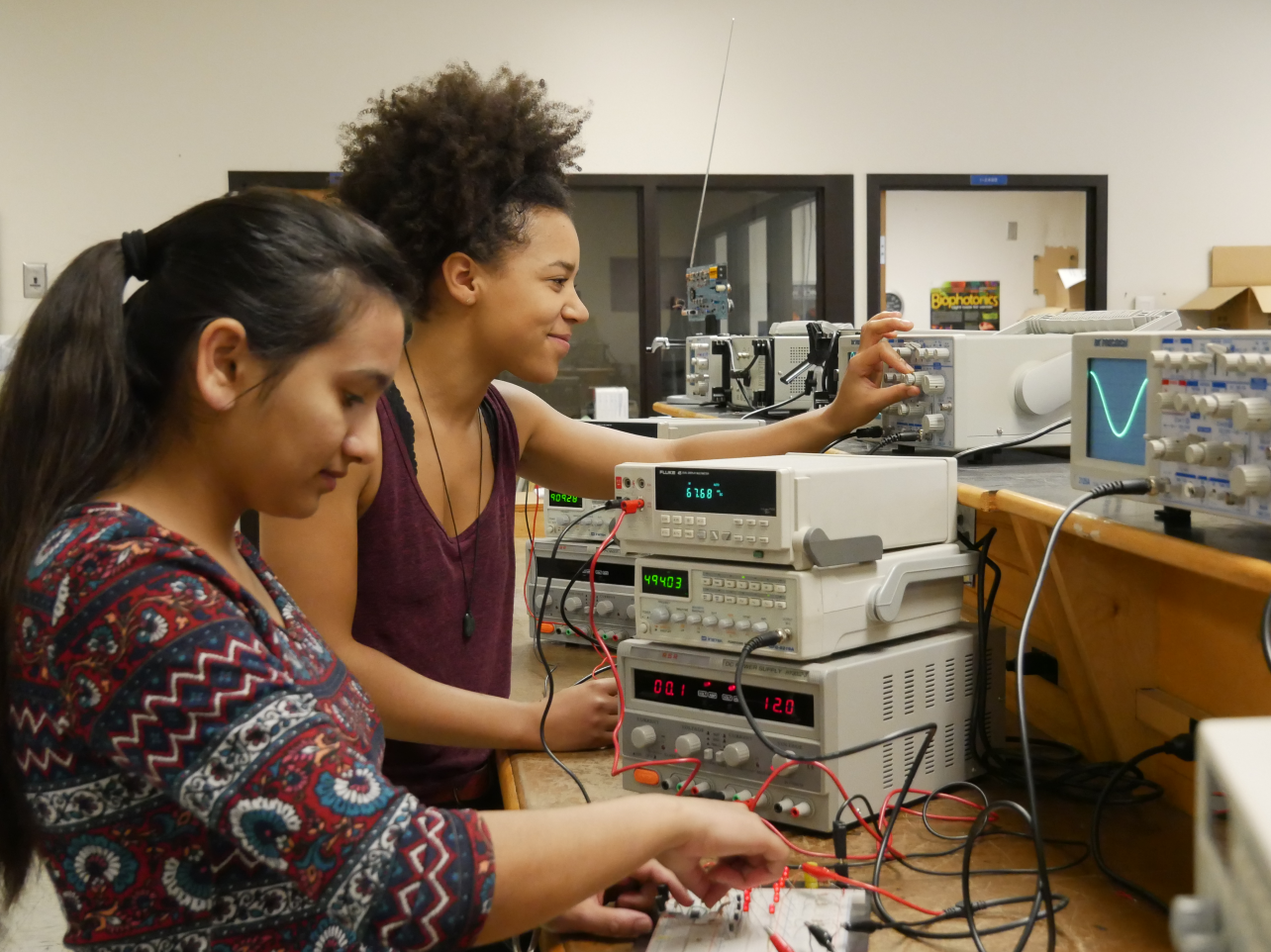
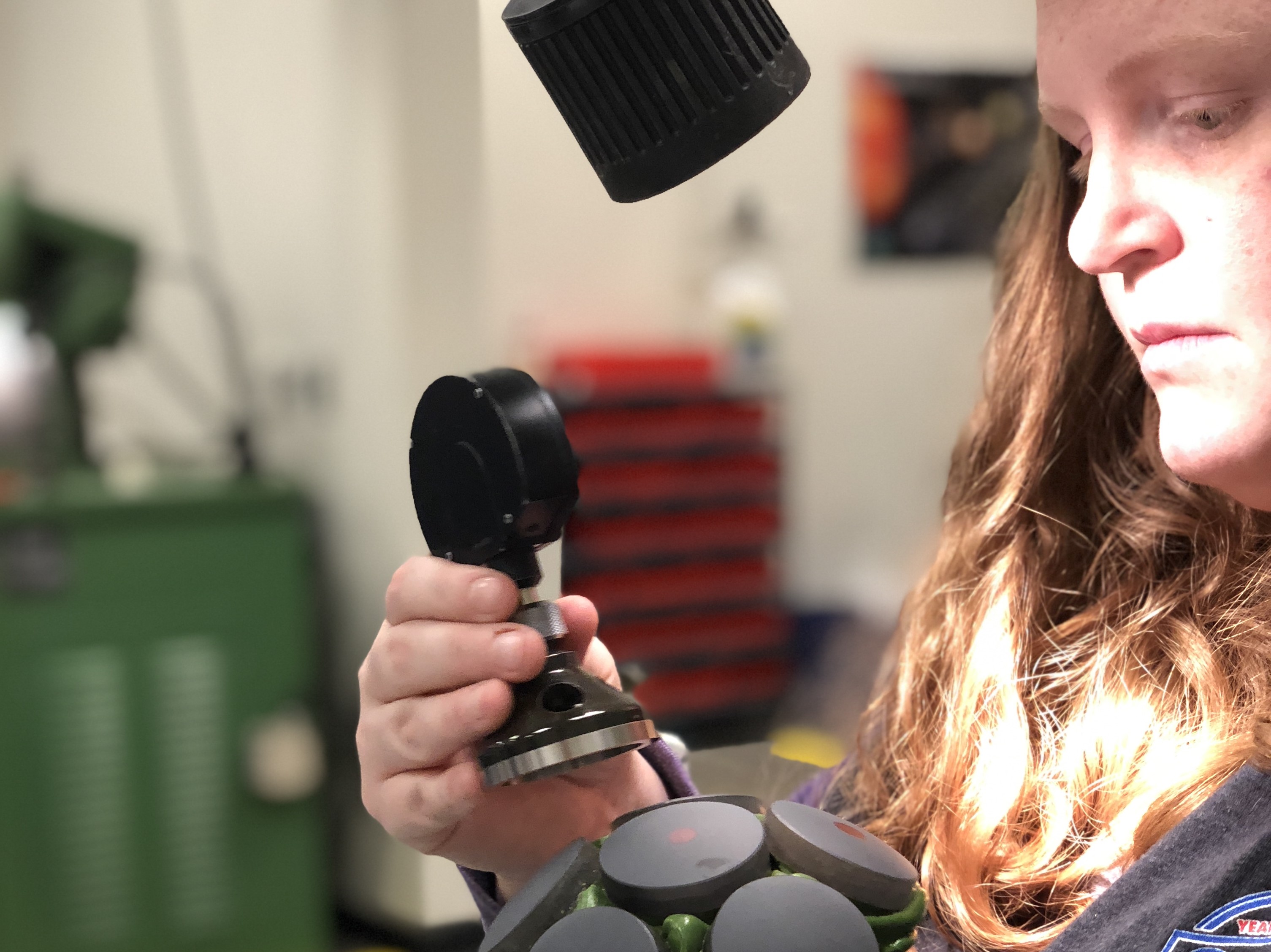
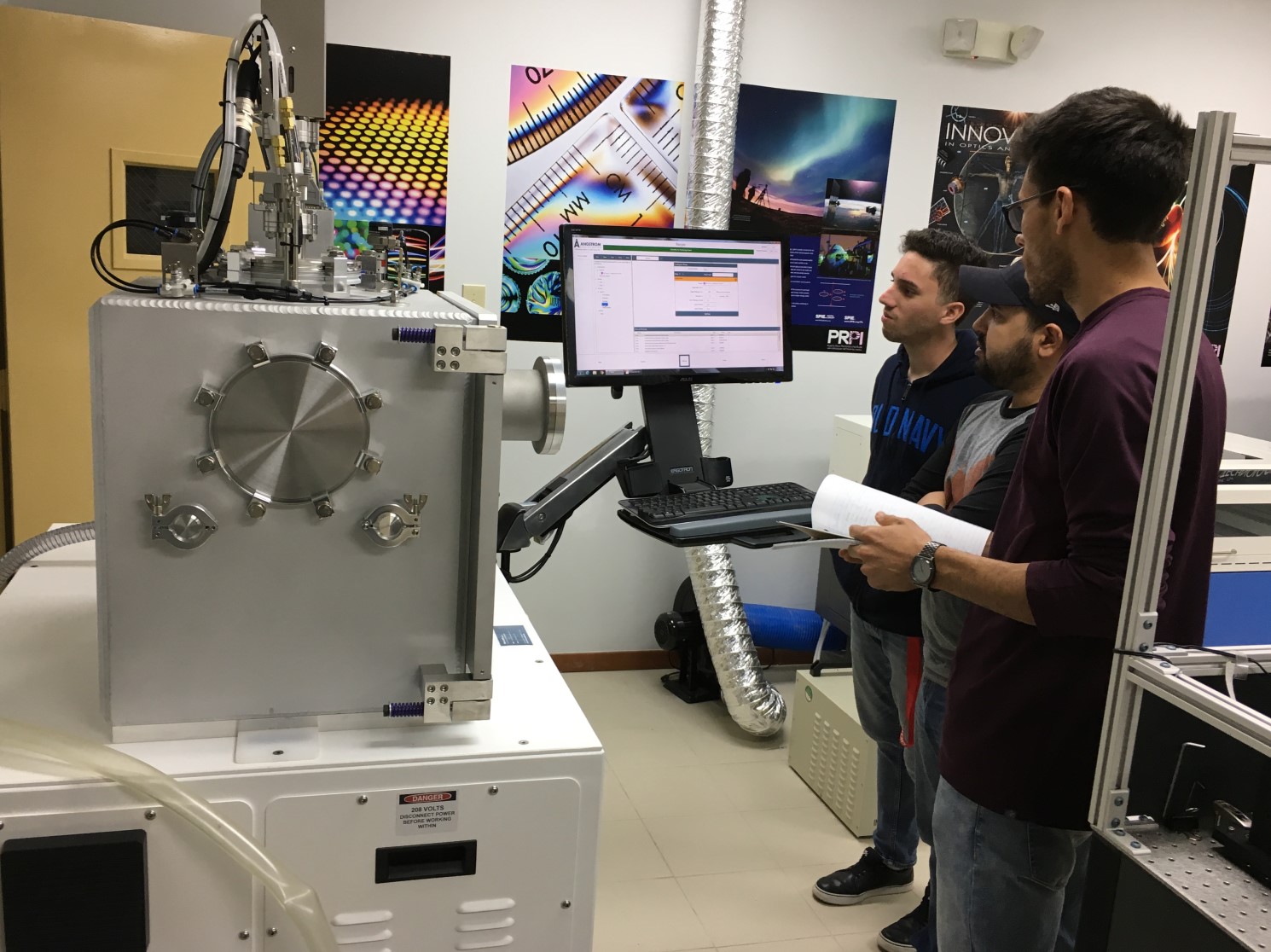
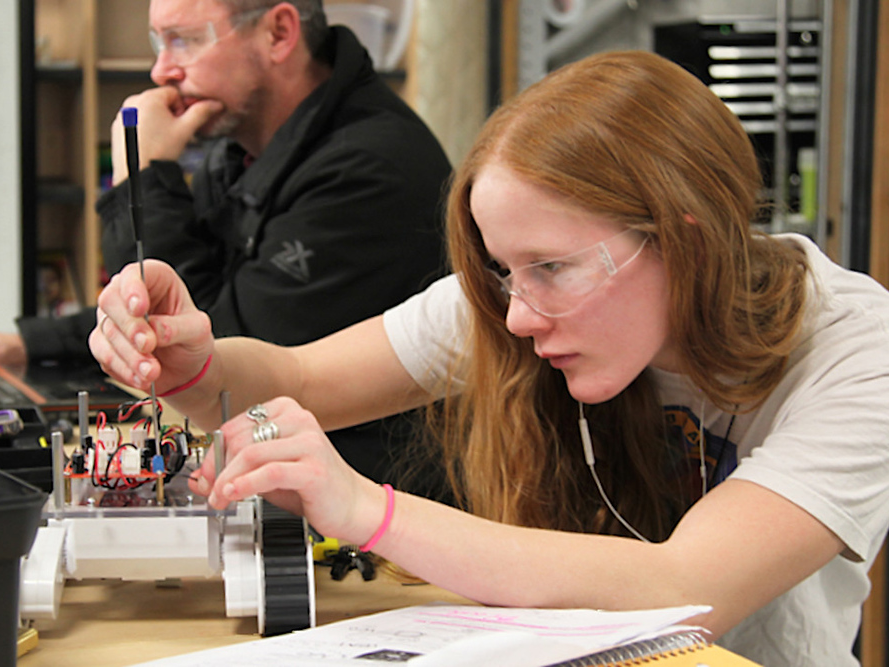
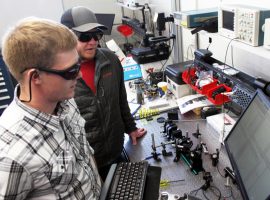

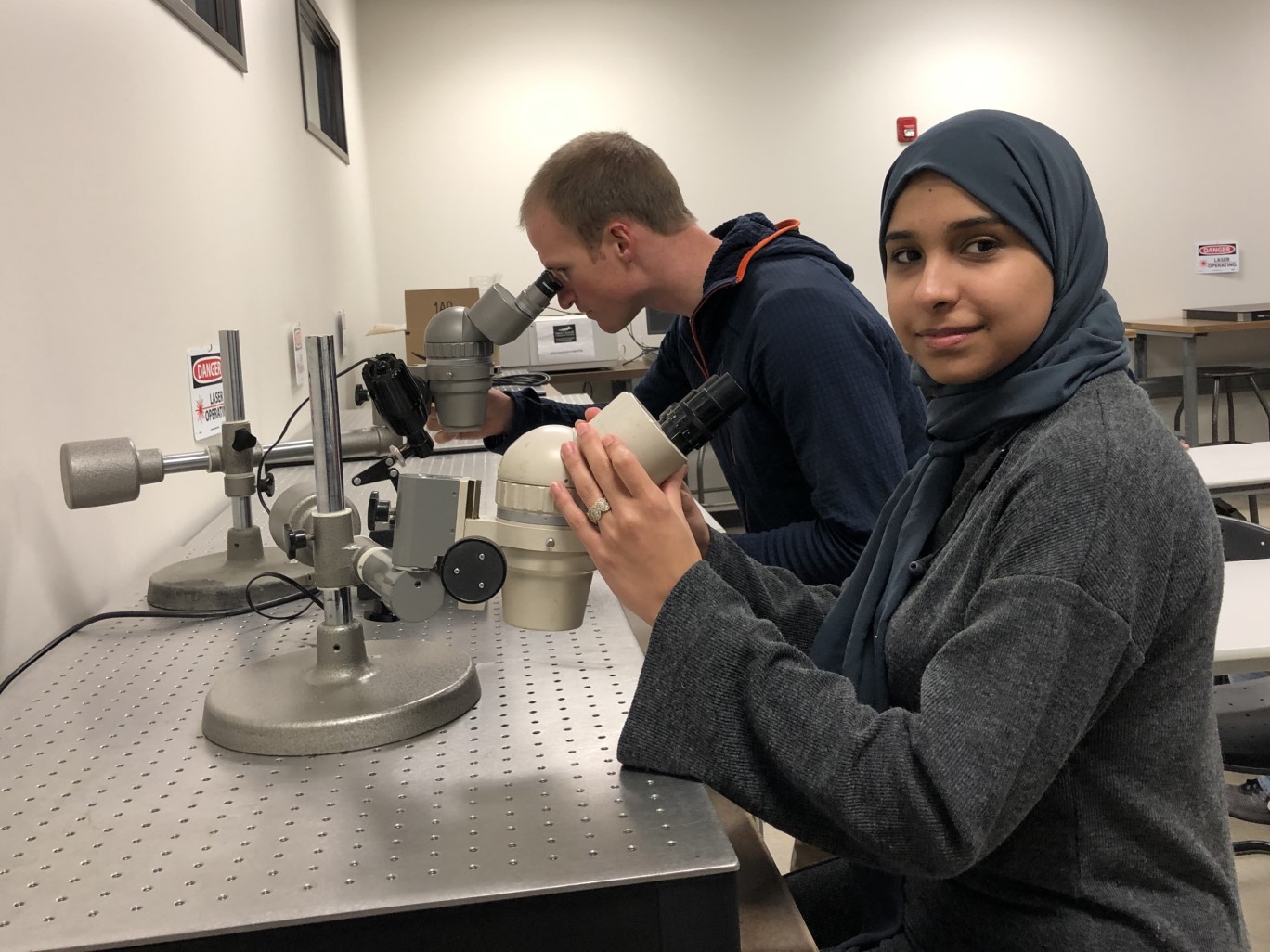
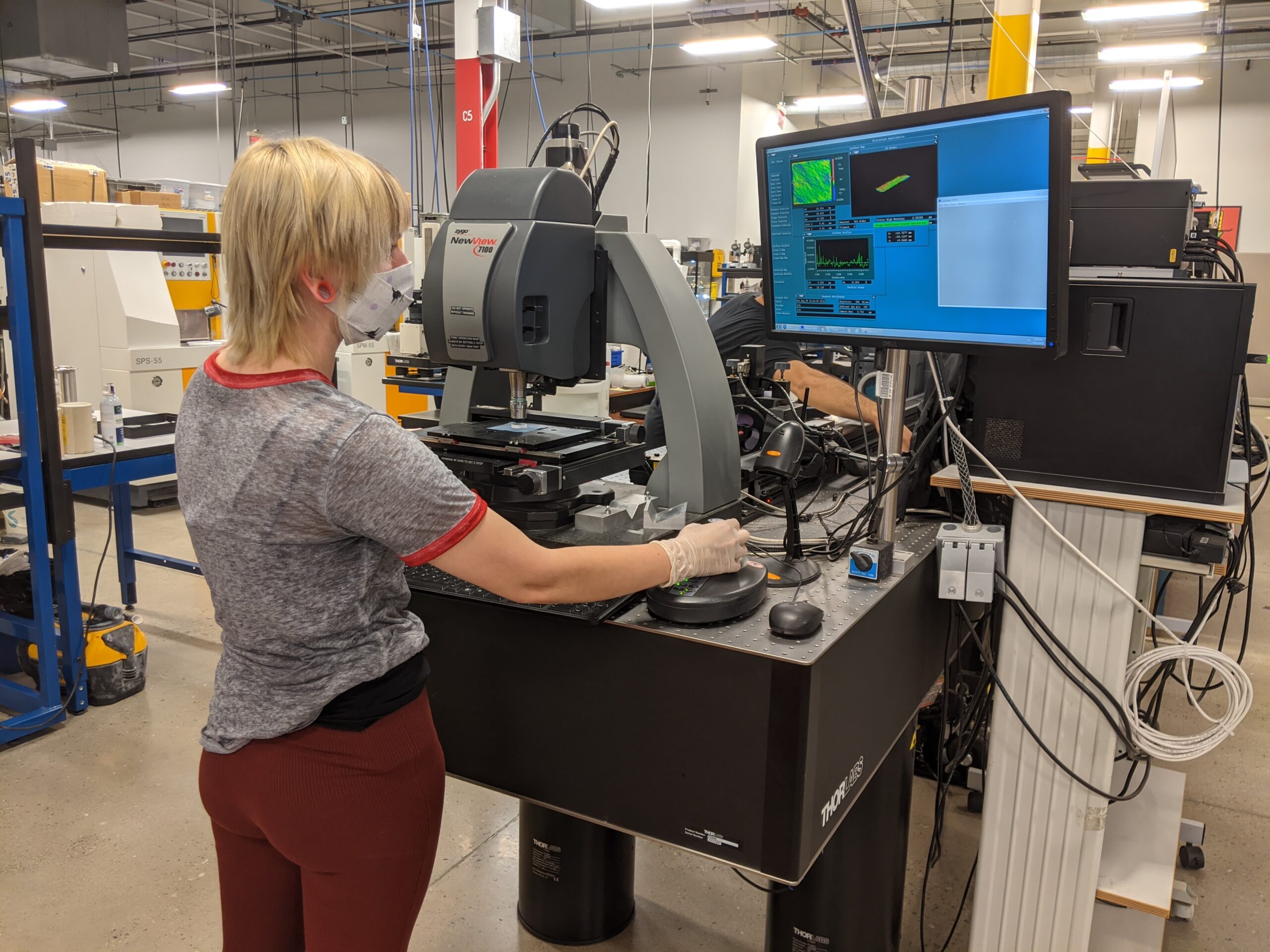
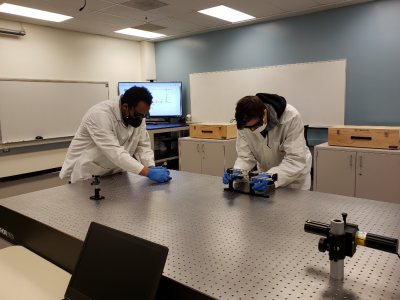
![Photonics students in action-LET215 2018 (16) [Mohsin]crop Photonics students in action-LET215 2018 (16) [Mohsin]crop](https://laser-tec.org/wp-content/uploads/elementor/thumbs/Photonics-students-in-action-LET215-2018-16-Mohsincrop-p4qp7ul0z9085zstbrd9zl6vtbgesi76y3xg08c40g.jpg)